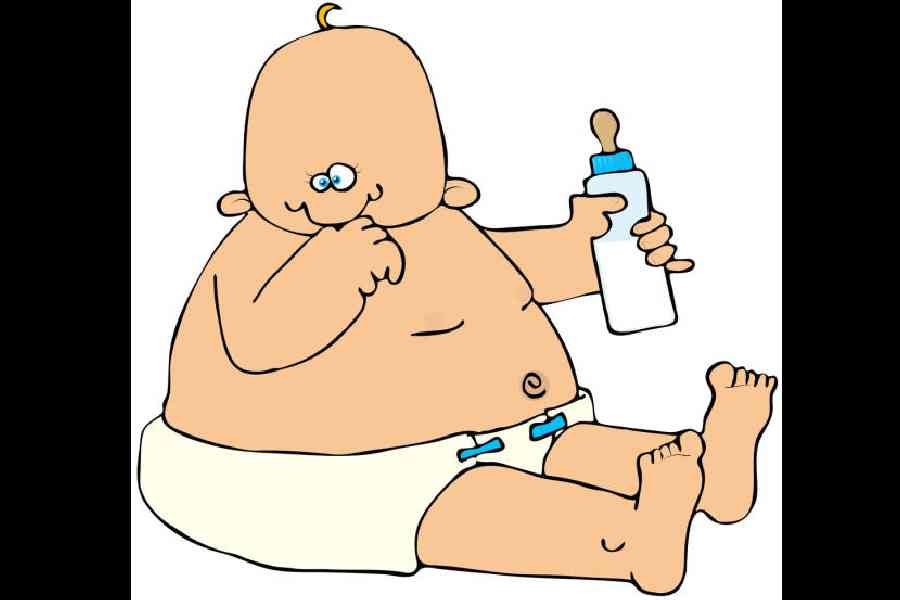Everybody loves chubby babies, and parents often compare their children’s weight with that of other children. Healthy weight gain typically results in a baby doubling its weight in five months and tripling it by the first birthday. In contrast, a baby born weighing only 2.2kg will weigh around 4.4kg at five months and about 6.6kg at one year. When these two children stand side by side, the difference in size is striking.
In an effort to accelerate weight gain, some parents overfeed their children from birth, especially through bottle feeding. Many also introduce solid foods before 180 days of age, which is not recommended. Early weaning can promote excessive weight gain and alter healthy growth patterns.
Obesity is not merely a perception; it is a scientific calculation based on the body mass index (BMI), which is calculated by dividing weight in kilograms by height in metres squared (kg/m²). In children and teenagers, BMI is interpreted using percentiles from growth charts that are appropriate for the child’s age and sex.
India has seen a dramatic increase in childhood obesity, with rates now between 5 per cent and 20 per cent, depending on the region.
Children these days are significantly less active than those in the past. Even before the age of two, instead of moving around and exploring, they spend time sitting in front of a television, tablet or mobile phone. Children under two should not be exposed to screens at all while older children should limit their screen time to one or two hours on weekends only.
All children need at least 60 minutes of moderate to vigorous physical activity every day. Unfortunately, many schools no longer offer a daily compulsory games period, replacing it with academic coaching or extra tuition. Government efforts to address this issue have largely been unsuccessful, as schools continue to prioritise academic
performance, grades and competitive exams. As a result, many children go straight from school to tuition centres, with no time for outdoor play.
Childhood obesity carries severe health consequences. It increases the risk of developing diabetes, metabolic syndrome, elevated blood pressure, high cholesterol and heart disease at an early age. Obesity can also worsen asthma, contribute to snoring and cause repeated episodes of sleep apnoea. Alarmingly, heart attacks are now being reported in people in their twenties and thirties.
Girls face particular risks because obesity raises the chances of developing polycystic ovarian disease (PCOD). Through mechanisms like insulin resistance and hormonal imbalances, PCOD can cause irregular periods, acne, hair loss and unwanted facial hair growth, seriously affecting their confidence and health.
Obesity not only impacts physical health. Obese children are often excluded from school sports and cultural events, which limits their social life. They may struggle to form friendships and suffer from low self-esteem and depression.
It is the responsibility of parents to ensure their children engage in sufficient physical activity. Parents should wake up a bit earlier and encourage their children to run or play for at least 30 minutes daily, whether on the terrace or in front of the house. This habit will cover some of the child’s daily exercise needs.
If the school does not offer adequate sports facilities, parents can enrol their children in summer programmes run by the Sports Authority of India and similar organisations. These programmes offer coaching in various sports. Teaching children to swim or learn martial arts can also be beneficial.
Parents are the first and most important motivators for a child’s healthy lifestyle. Physically active parents who exercise regularly produce healthy children. Together, as families, schools and communities, we need to prioritise our children’s health and build a healthier, more active nation for the future.
The writer has a family practice at Vellore and is the author of Staying Healthy in Modern India. If you have any questions on health issues please write to yourhealthgm@yahoo.co.in











